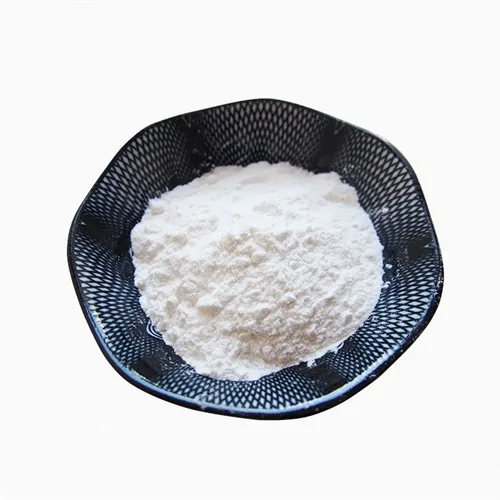Warning: Undefined array key "title" in /home/www/wwwroot/HTML/www.exportstart.com/wp-content/themes/1198/header.php on line 6
Warning: Undefined array key "file" in /home/www/wwwroot/HTML/www.exportstart.com/wp-content/themes/1198/header.php on line 7
Warning: Undefined array key "title" in /home/www/wwwroot/HTML/www.exportstart.com/wp-content/themes/1198/header.php on line 7
Warning: Undefined array key "title" in /home/www/wwwroot/HTML/www.exportstart.com/wp-content/themes/1198/header.php on line 7
- Afrikaans
- Albanian
- Amharic
- Arabic
- Armenian
- Azerbaijani
- Basque
- Belarusian
- Bengali
- Bosnian
- Bulgarian
- Catalan
- Cebuano
- China
- China (Taiwan)
- Corsican
- Croatian
- Czech
- Danish
- Dutch
- English
- Esperanto
- Estonian
- Finnish
- French
- Frisian
- Galician
- Georgian
- German
- Greek
- Gujarati
- Haitian Creole
- hausa
- hawaiian
- Hebrew
- Hindi
- Miao
- Hungarian
- Icelandic
- igbo
- Indonesian
- irish
- Italian
- Japanese
- Javanese
- Kannada
- kazakh
- Khmer
- Rwandese
- Korean
- Kurdish
- Kyrgyz
- Lao
- Latin
- Latvian
- Lithuanian
- Luxembourgish
- Macedonian
- Malgashi
- Malay
- Malayalam
- Maltese
- Maori
- Marathi
- Mongolian
- Myanmar
- Nepali
- Norwegian
- Norwegian
- Occitan
- Pashto
- Persian
- Polish
- Portuguese
- Punjabi
- Romanian
- Russian
- Samoan
- Scottish Gaelic
- Serbian
- Sesotho
- Shona
- Sindhi
- Sinhala
- Slovak
- Slovenian
- Somali
- Spanish
- Sundanese
- Swahili
- Swedish
- Tagalog
- Tajik
- Tamil
- Tatar
- Telugu
- Thai
- Turkish
- Turkmen
- Ukrainian
- Urdu
- Uighur
- Uzbek
- Vietnamese
- Welsh
- Bantu
- Yiddish
- Yoruba
- Zulu
Nov . 07, 2024 08:58 Back to list
Comparison of Aspartame and Sucralose in Low-Calorie Sweeteners and Their Health Effects
Understanding Aspartame and Sucralose Sweeteners in Focus
In recent years, the rise of artificial sweeteners has sparked both interest and debate among health enthusiasts, consumers, and regulatory agencies. Among the plethora of sweetening agents available on the market, aspartame and sucralose are two of the most popular. Both are used widely in various food and beverage products to provide sweetness without the calories associated with sugar. However, they possess unique properties and potential health implications that merit thorough examination.
Aspartame The Controversial Sweetener
Aspartame, discovered in 1965, is a low-calorie artificial sweetener composed of two amino acids aspartic acid and phenylalanine. It is approximately 200 times sweeter than sucrose (table sugar), which means only a small amount is needed to achieve a desired sweetness level. Aspartame is commonly found in diet sodas, sugar-free snacks, and various other products.
Despite its widespread use, aspartame has been at the center of controversy since its approval by the U.S. Food and Drug Administration (FDA) in 1981. Concerns have been raised regarding its safety, particularly in relation to phenylalanine, which can be harmful to individuals with phenylketonuria (PKU), a rare genetic disorder. Some studies have linked aspartame to various health issues, including headaches, allergic reactions, and even claims of increased cancer risk. However, the FDA, European Food Safety Authority (EFSA), and other regulatory bodies have consistently affirmed its safety for the general population when consumed within established acceptable daily intake (ADI) levels.
Sucralose The Sugar Mimic
Sucralose, on the other hand, is a more recent addition to the artificial sweetener market, being discovered in 1976. It is derived from sugar through a process that replaces three hydroxyl groups with chlorine atoms, creating a compound that is about 600 times sweeter than sucrose. This makes it an attractive alternative for those seeking to reduce caloric intake while still enjoying the sweetness associated with sugar.
aspartame e sucralose

One of the practical advantages of sucralose is its heat stability, meaning it can retain its sweetness even when exposed to high temperatures during cooking or baking. This quality makes it a popular choice for a variety of products, ranging from desserts to beverages. Moreover, sucralose is not metabolized by the body for energy; thus, it does not contribute calories, making it an appealing option for weight management.
Similar to aspartame, sucralose has also faced some scrutiny regarding its safety and potential health effects. Research has raised concerns about its impact on gut health, as some studies suggest that it may alter the gut microbiome. Furthermore, there are claims that excessive consumption can lead to negative effects, such as insulin resistance. Nonetheless, numerous studies, including those conducted by the FDA and EFSA, have deemed sucralose safe for human consumption, provided it is used within the recommended limits.
The Sweet Debate Aspartame vs. Sucralose
As consumers become increasingly health-conscious, debates between aspartame and sucralose often surface, primarily focusing on their safety profiles, taste, and impact on health. While individual preferences can vary greatly, regulatory bodies maintain that both sweeteners can be safely consumed within recommended guidelines.
When choosing between the two, it often comes down to personal preference regarding taste and usage. Some people may prefer the taste of one over the other, while others might consider potential health implications based on available research. It's also essential for consumers with specific health conditions, like PKU, to make informed decisions, particularly regarding aspartame.
In conclusion, aspartame and sucralose are two of the most utilized artificial sweeteners, each with unique characteristics and ongoing discussions surrounding their safety and health impacts. As with many dietary choices, moderation, and individual awareness are key. As consumers continue to embrace healthier lifestyles, understanding the nuances of such sweeteners can aid them in making well-informed decisions that align with their health goals.
Latest news
-
Certifications for Vegetarian and Xanthan Gum Vegetarian
NewsJun.17,2025
-
Sustainability Trends Reshaping the SLES N70 Market
NewsJun.17,2025
-
Propylene Glycol Use in Vaccines: Balancing Function and Perception
NewsJun.17,2025
-
Petroleum Jelly in Skincare: Balancing Benefits and Backlash
NewsJun.17,2025
-
Energy Price Volatility and Ripple Effect on Caprolactam Markets
NewsJun.17,2025
-
Spectroscopic Techniques for Adipic Acid Molecular Weight
NewsJun.17,2025

